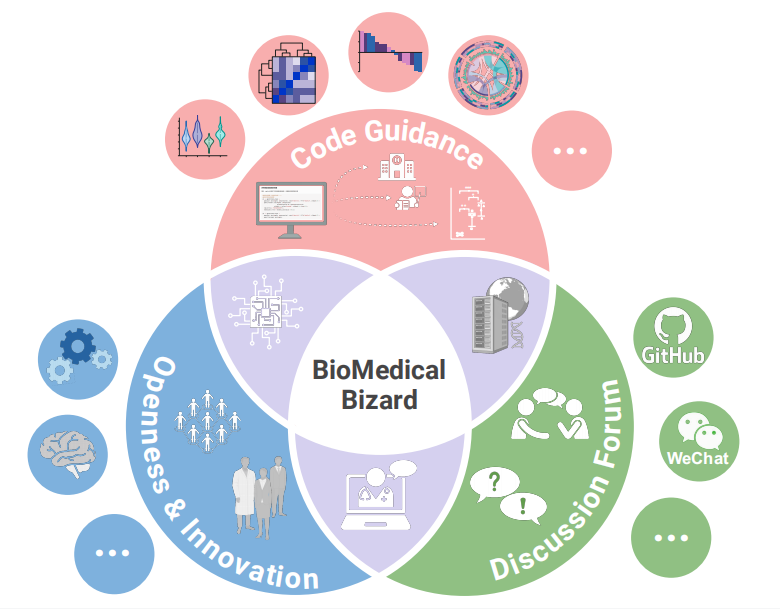Tutorial
As a comprehensive visual code repository for community collaboration, Bizard is a platform based on GitHub that integrates Discussion Questions, Graphics Collection, Collaborative Development, and Automated Deployment. Community members can discuss problems through GitHub Discussions, initiate new graphics through GitHub Issues, contribute through GitHub Pull Requests, and automate website deployment using GitHub Actions. The following describes each step in detail:
Discussion Questions
GitHub Discussions is a forum-like platform that provides a relaxed and open space for project communication. In Bizard, we built a website comment system based on giscus, which is located at the bottom of the website page:
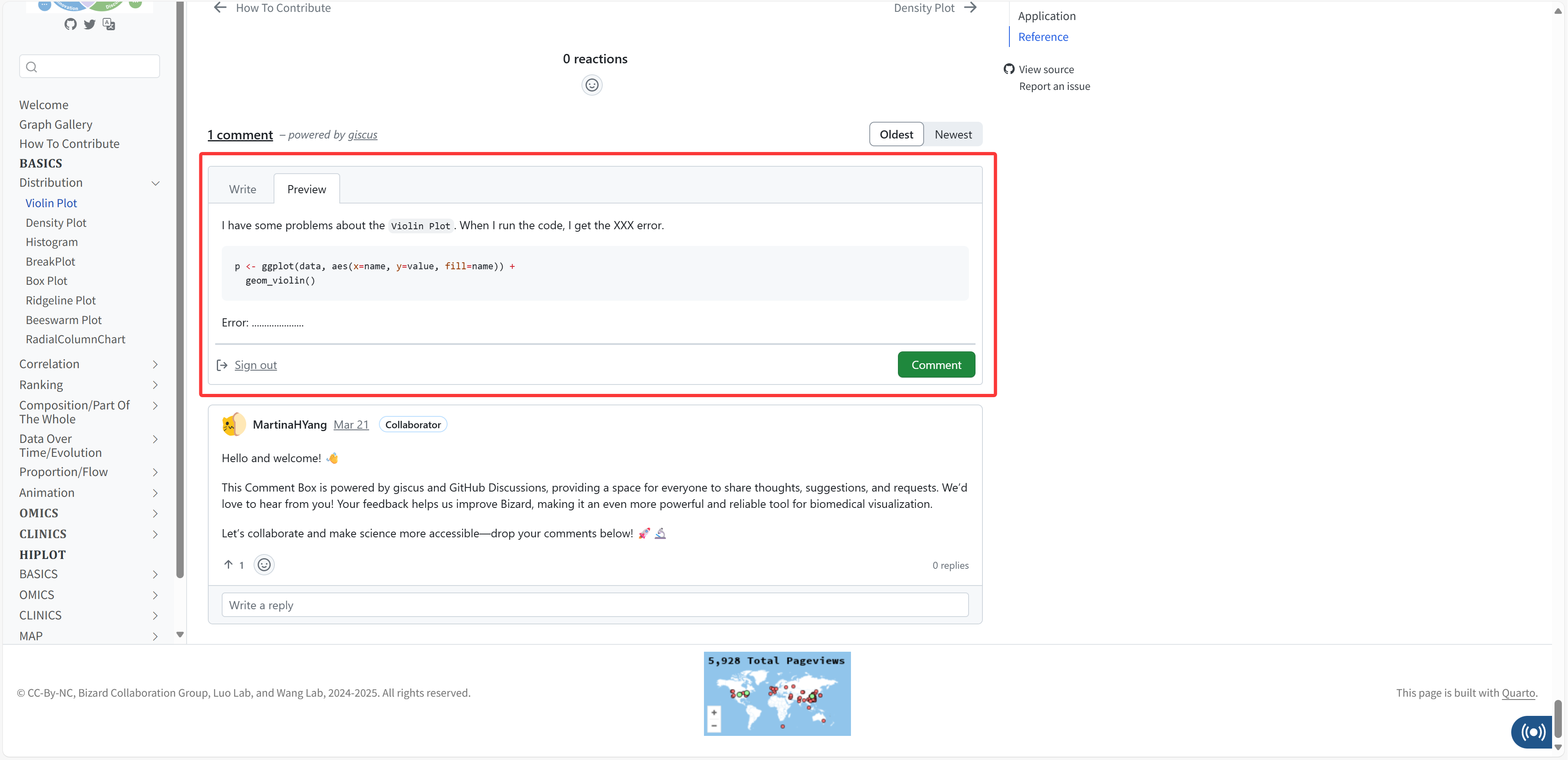
If you have problems with any of the graphic tutorials, you can start a discussion using the comment box at the bottom of the tutorial page. To do so, you need to log in to your GitHub account and edit your question using Markdown syntax.
Once you submit a comment, your question will be automatically announced in the GitHub Discussions section of the Bizard project repository and marked with a link to the graphic tutorial. Any community member who sees your question can contribute to the discussion, and the Bizard operations team will regularly respond to questions in GitHub Discussions.
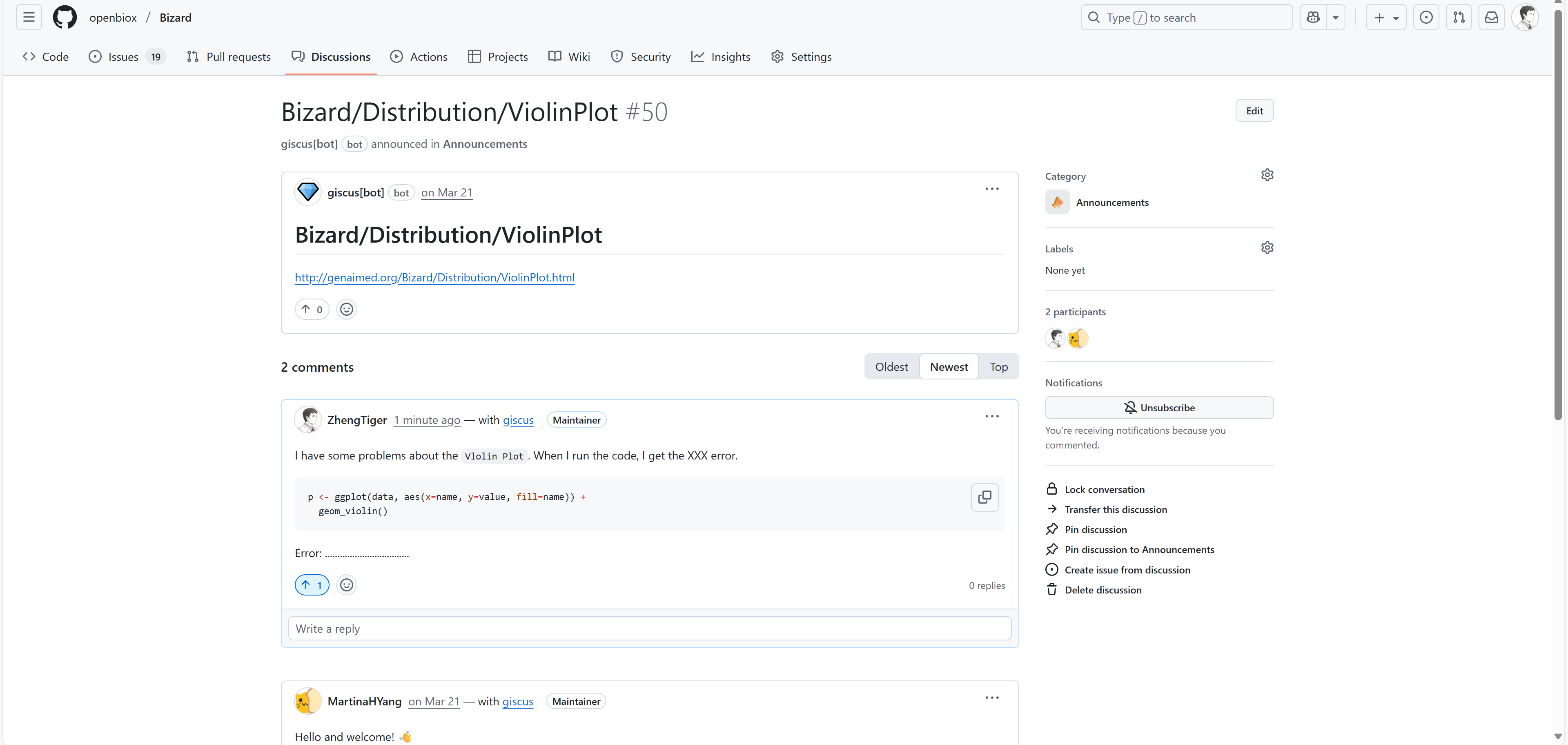
Graphics Collection
Bizard is always looking for new graphics from the community. You can submit them through GitHub Issues. The following information is required when submitting:
- Proposed Graphic Name
- Graphic Category: Basics / Clinical / Omics
- Graphic Example
- Related Resources: Graphic-Related Links
Reference example: New Graphic Collection (First Issue)
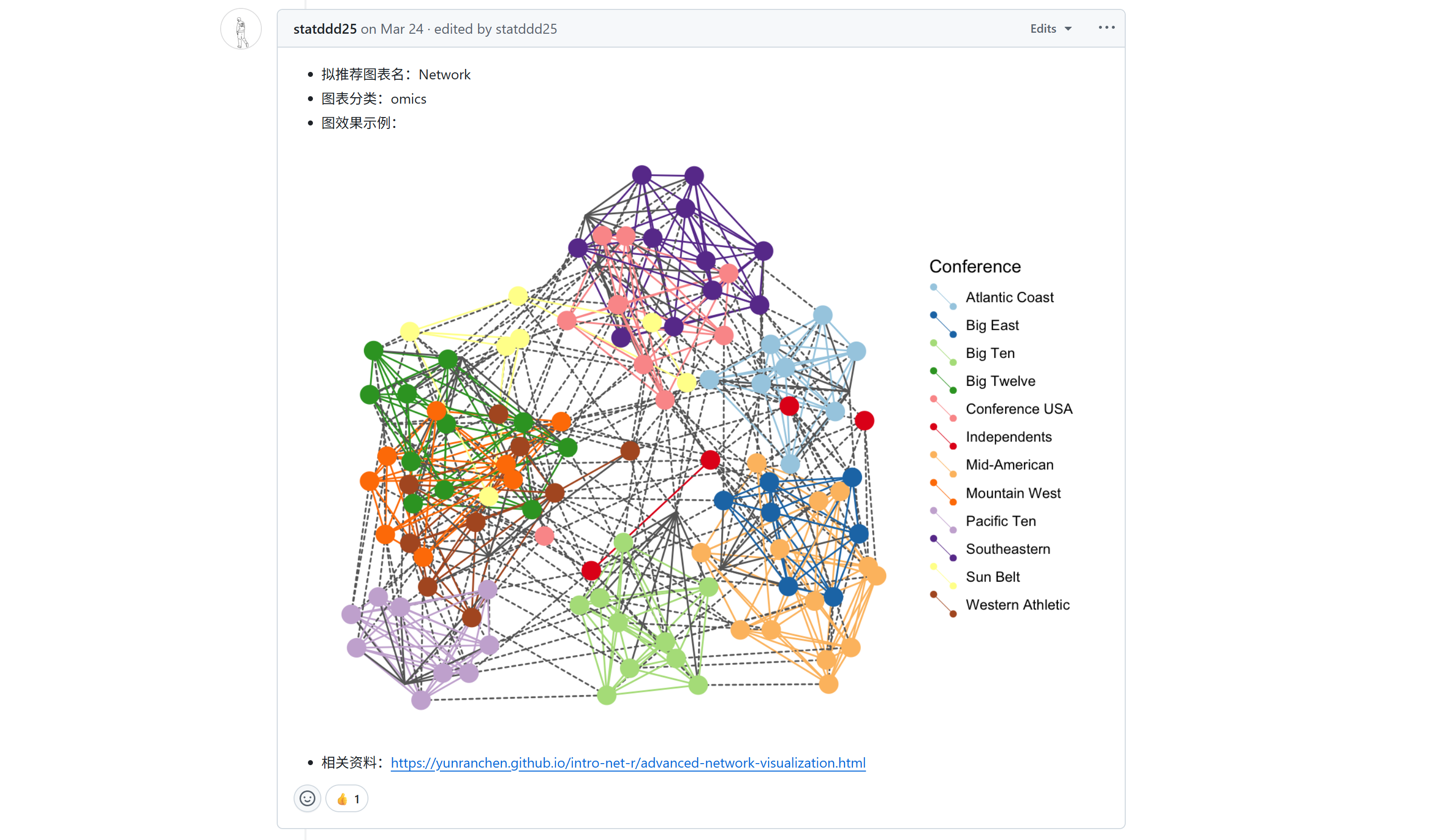
After submitting GitHub Issues, the Bizard operations team will review the chart. The review results include the following three categories:
- Project not yet considered
- Supplement to existing graphic tutorials
- Add new graphic tutorials
Once approved, you can provide a graphic tutorial via GitHub Issues or Pull Requests. If you are unable to provide a tutorial, the Bizard operations team will assign someone else to handle it.
Collaborative Development
All community members can participate in the development of the Bizard project through GitHub Pull Requests, such as contributing new graphic tutorials, optimizing the website layout, etc.
Before contributing a new tutorial via Pull Requests, we recommend submitting a GitHub Issue. The Bizard Operations Team will review the tutorial and provide suggestions for revisions. If you are unable to submit a Pull Request, the Bizard Operations Team will assign someone else to submit it.
Graphic tutorials should be written in accordance with Bizard’s formatting standards and should include the following:
- Graphic Description
- Example
- Setup
- Data Preparation
- Visualization
- Application
- Reference
Reference example: - New graphic tutorial (Omics - Multiple volcano Plot) - Issue 1 (Omics/MultiVolcanoPlot)
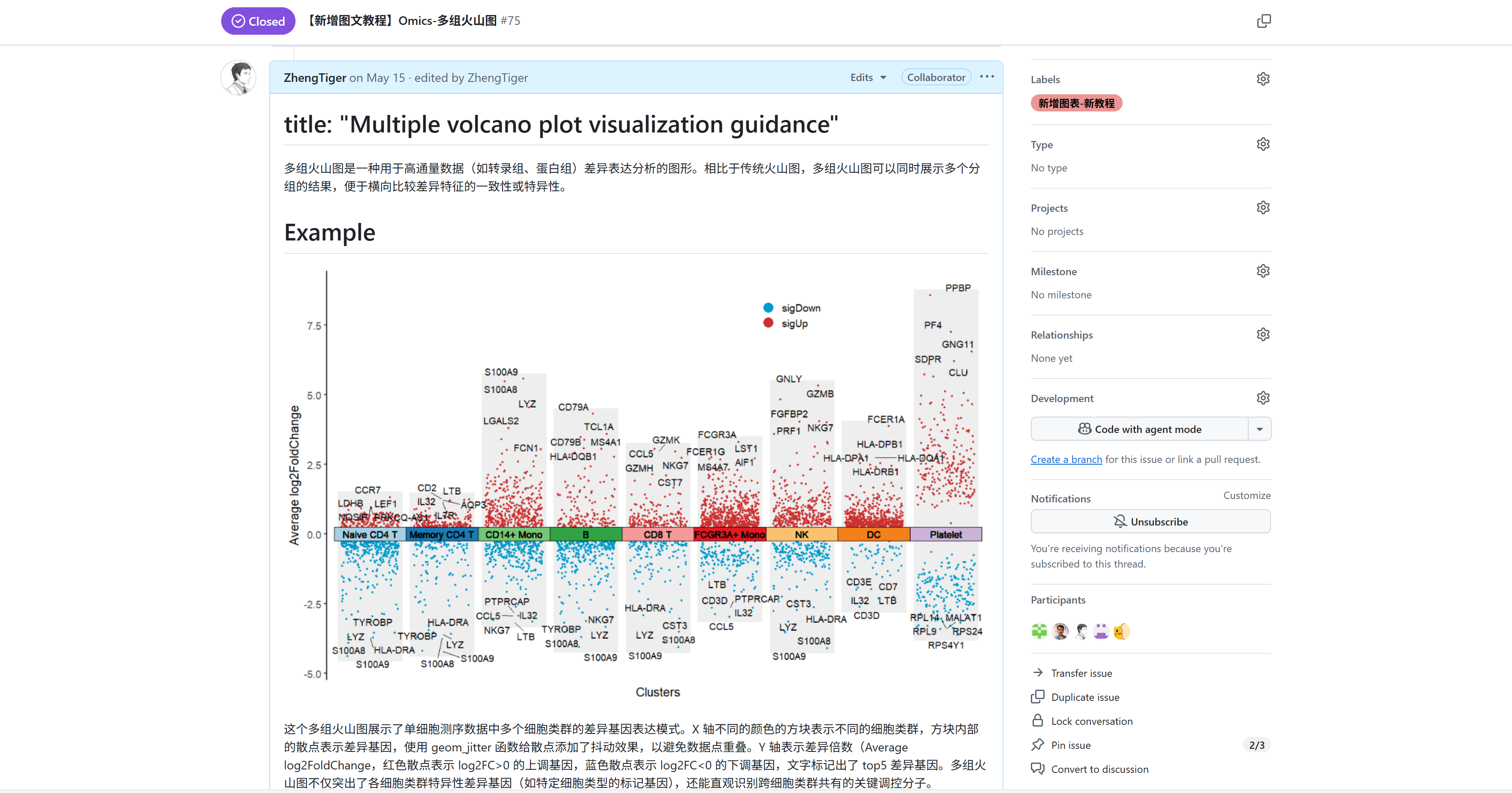
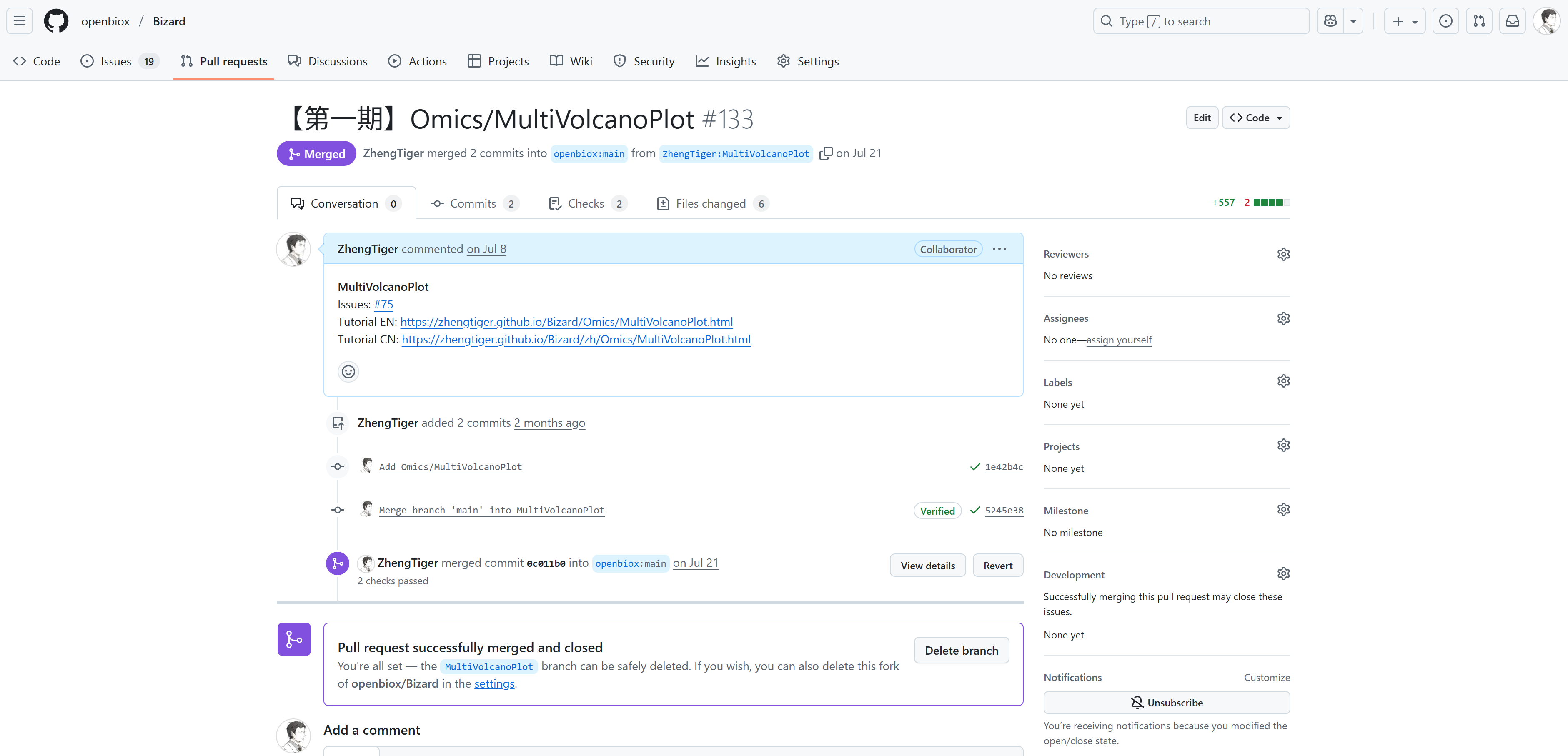
Automated Deployment
To ensure efficient and reliable website development and completely eliminate the tediousness, delays, and risk of human error associated with manual website updates, Bizard has built a comprehensive automated workflow using GitHub Actions. This fully automates the entire process from code submission to website deployment, significantly improving the agility and stability of website iterations. The workflow is as follows: When a developer pushes new website content or code updates to a designated master branch (such as main or master) or initiates a pull request, GitHub Actions is automatically activated. It immediately executes a series of key tasks within a clean virtual environment provided by GitHub, strictly following a pre-defined configuration file (Workflow File), building the website and automatically deploying it to GitHub Pages.
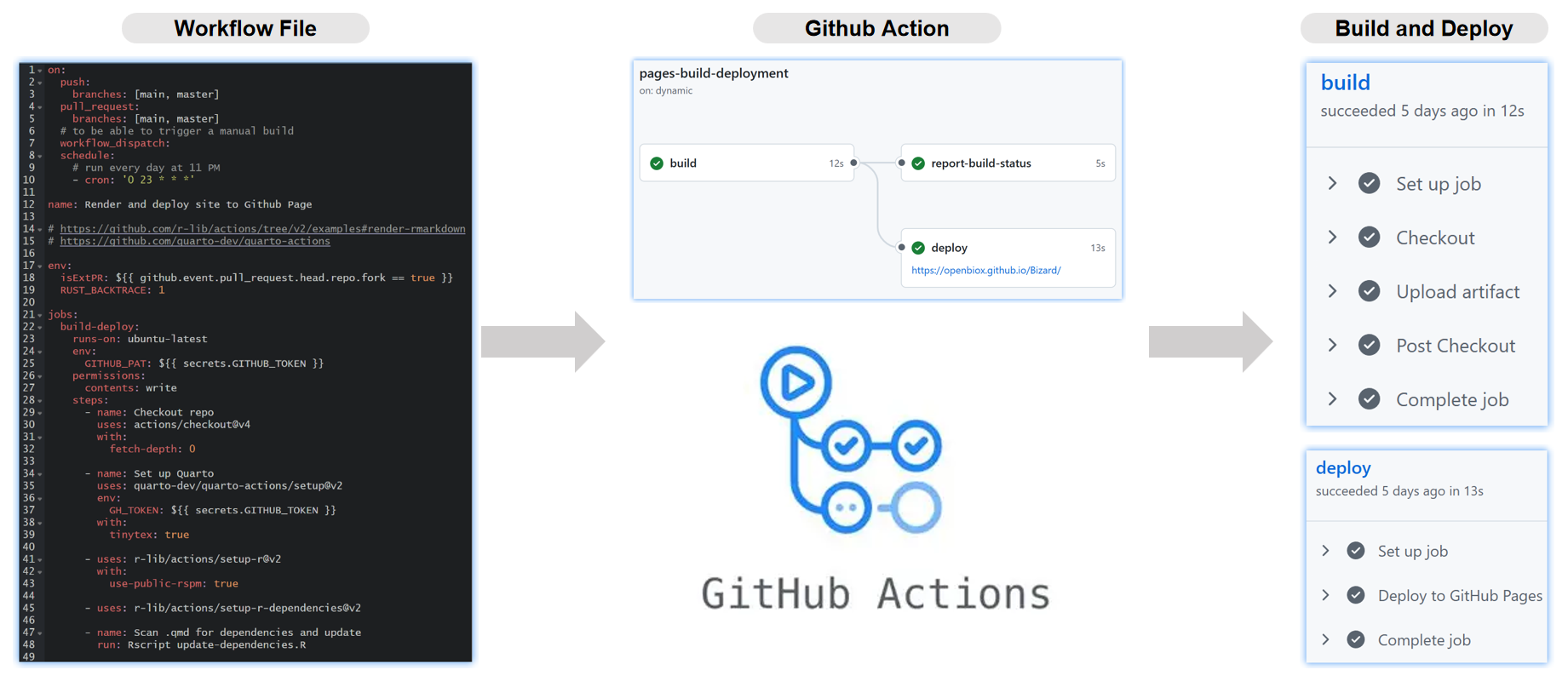
Graph Gallery
The Graph Gallery feature was introduced to comprehensively address challenges arising from the rapidly growing number of graphics, including difficulties in locating specific graphics, management disorganization, and inefficient usage. By leveraging the advanced table management tool reactable, Bizard has integrated all graphics and rendered the table using JavaScript and CSS front-end code. In this tabular interface, each graphic is presented as a clear entry with key attributes: Graphic ID, Name, Description, and Type. Users can accurately locate the content they need from the extensive graphics collection through filtering, sorting, and keyword search, significantly enhancing the efficiency of information retrieval.
We use two versions of tables, one in Chinese and one in English, located in the Bizard/files/ path to manage the image library, as shown below:
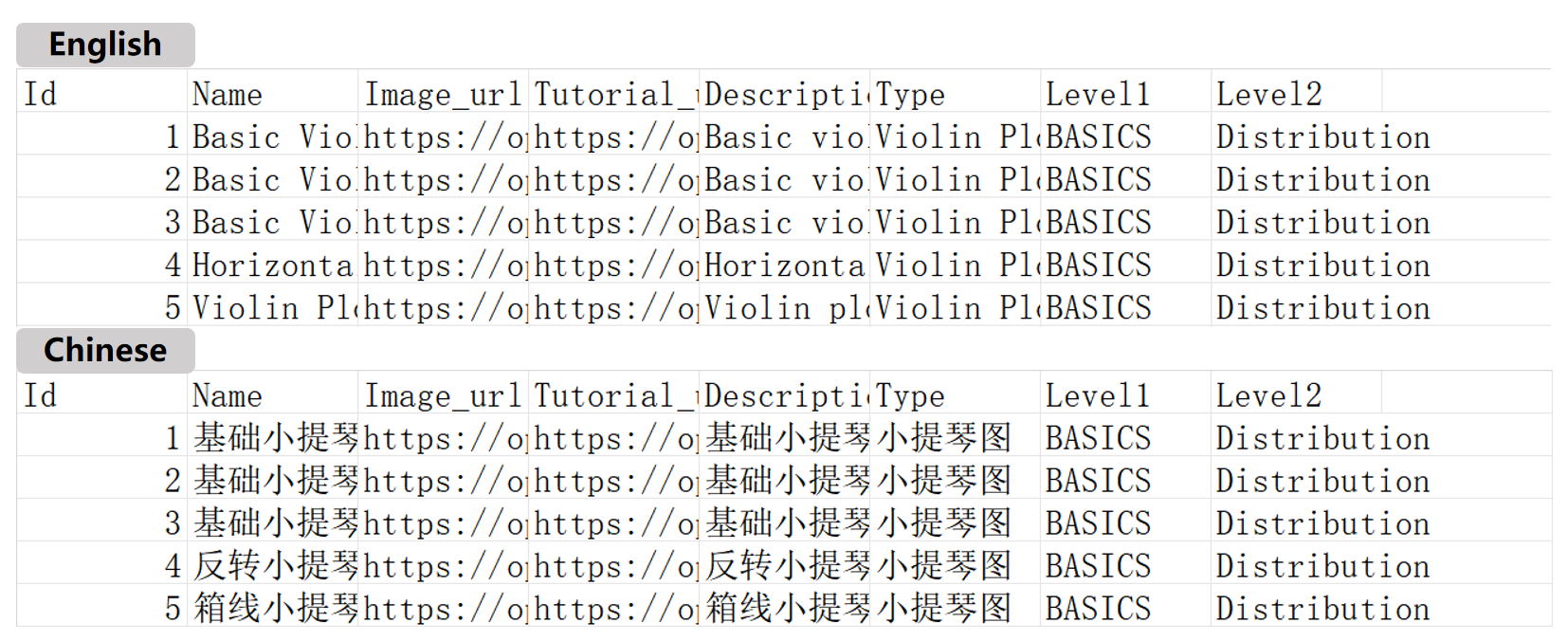
When updating the gallery, developers need to fill in the graphic information in these two tables, including:
-
Id: Image ID -
Name: Image Name -
Image_url: Image Link (can be copied from the rendered tutorial) -
Tutorial_url: Tutorial Link -
Description: A brief description of the image in one sentence -
Type: Third-level image type -
Level1: First-level image type, including: BASICS, OMICS, CLINICS, HIPLOT -
Level2: Second-level image type, such as: Distribution, Correlation, Ranking, etc.
To ensure that the text in the table renders correctly, you need to save the table as a CSV UTF-8 file after filling it out.
